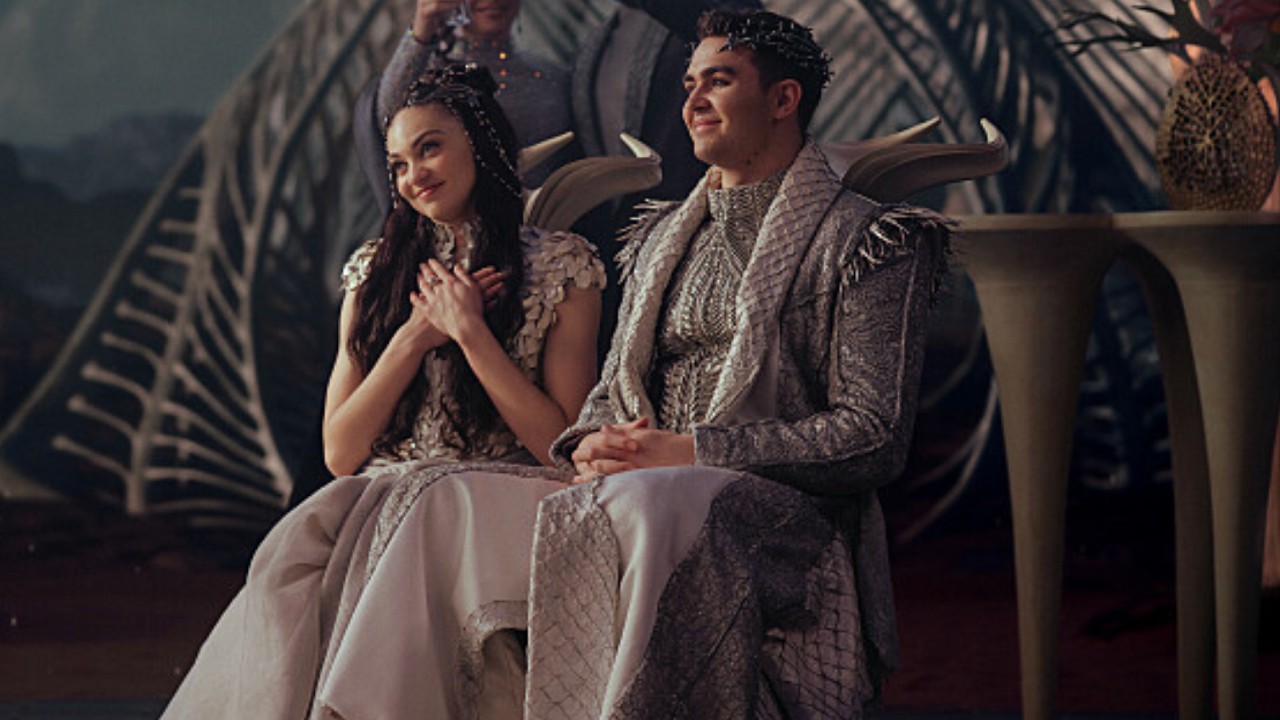The Long Walk Has An Alternate Ending, And I’m Both Happy And Amazed That It Wasn’t In The Theatrical Cut
It's a very different ending than what I expected.
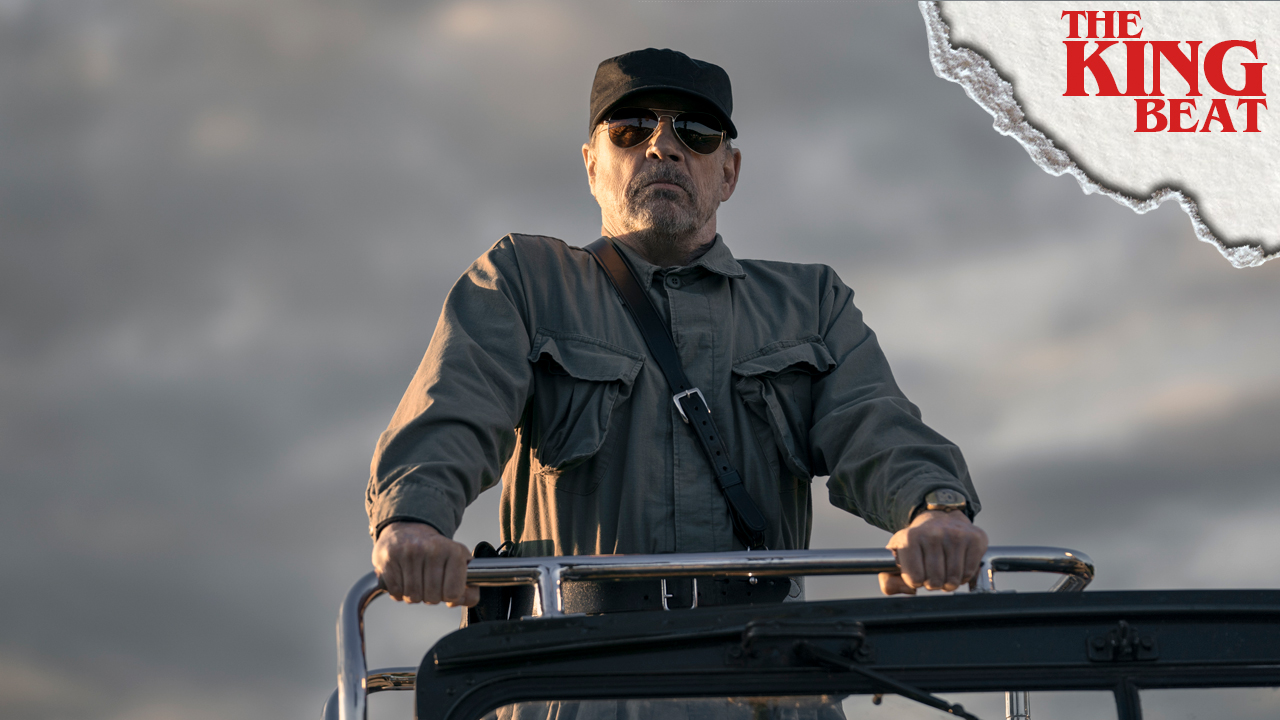
Your Daily Blend of Entertainment News
You are now subscribed
Your newsletter sign-up was successful
SPOILER WARNING: The following article contains massive spoilers for The Long Walk. If you have not yet seen the film, proceed at your own risk!
Happy Thanksgiving, fellow Stephen King fans! The fact that it’s Turkey Day means that we are getting very close to the end of the year, but what’s particularly special about 2025 is that the King-related goodies just keep on coming. New episodes of IT: Welcome To Derry are still rolling out weekly on HBO/for people with an HBO Max subscription (with the most recent one finally delivering a phenomenal entrance for Bill Skarsgård’s Pennywise), and this past Tuesday was special because it marked the arrival of The Long Walk on 4K UHD and Blu-ray (currently only available in an excellent slipcased Steelbook, and a must for any Stephen King collection).
More than just the Francis Lawrence-directed adaptation’s debut on physical media in the wake of theatrical and digital releases in recent months, what’s particularly exciting about the new release is that it includes an alternate ending that hasn’t been featured anywhere else. Having purchased a copy of the film personally, I watched the never-before-seen conclusion this week, and in the aftermath, I’m going to use all of this week’s edition of The King Beat to explain why I’m both happy and amazed that it wasn’t used for the theatrical release. There’s a lot to discuss, so let’s dig in!
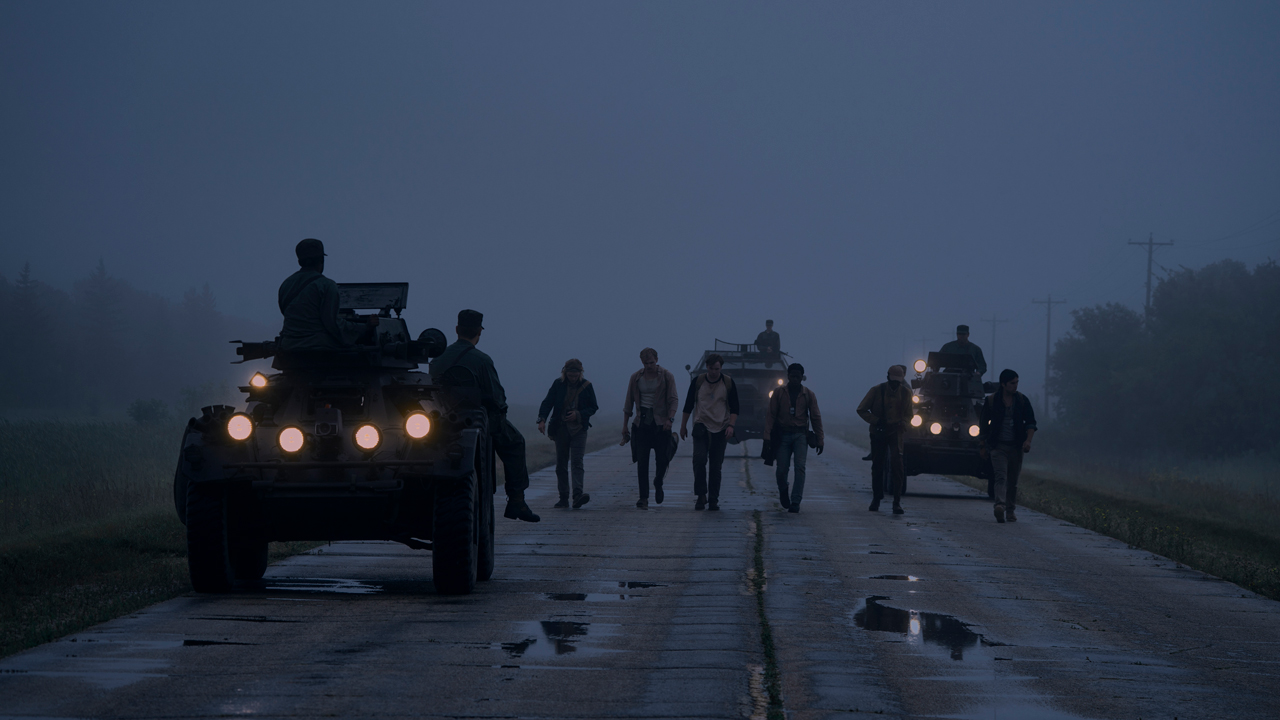
What Happens In The Long Walk’s Alternate Ending
When I first learned that there was going to be a Long Walk alternate ending featured on the physical media release of the film, my first thought was that it would perhaps be a more faithful adaptation of what’s featured in the book – which is to say that it would have Ray Garraty win but be so despondent and traumatized that he just keeps walking/starts to run. It turns out that I was way off, as what’s featured on the 4K UHD really is best described as an alternate ending to what audiences will remember from the theatrical version.
The scene included in the special features of the disc begins with Ray Garraty (Cooper Hoffman) and Peter McVries (David Jonsson) as the only remaining competitors in The Long Walk, and it’s pouring rain on crowds that have gathered around on both sides of the street to see who will be declared the winner. As in the theatrical cut, Peter stops walking, receiving his second warning in the process, and Ray earns his own second warning urging him to continue. As Peter starts forward again, he fails to notice that his friend has stopped behind him. Soldiers put two rounds in Ray’s chest, and the Major (Mark Hamill) declares Peter the winner after personally shooting Ray square in the forehead with a pistol.
The scene continues to remain unchanged as the Major asks the winner for his big wish, and Peter asks for the carbine rifle of a soldier standing nearby – something he claims he can show to future generations. When he has the gun in hand, he immediately points it at the Major, which earns a nonplussed but “no harm done” reaction.
That’s where things deviate from the Long Walk theatrical cut. Peter says, “This is for Ray,” and it seems like he is going to fulfill his friend’s planned wish from earlier in the movie… but then he doesn’t. Instead, he drops the gun at his side and walks off down the road.
Your Daily Blend of Entertainment News
After the scene fades to black, white lines of text in a typewriter-esque font unfurl on the screen, offering an explanation of what happened in the aftermath of The Long Walk:
- "It was an early fall morning, months after Peter McVries won the Long Walk, when the Musketeers’ next of kin – Ginny Garraty, Clementine Olson, and Geraldine Baker – each heard a knock at their door
- When they opened it, no one was there.
- Instead, they each found a large envelope filled with more money than any of them had ever seen.
- These mysterious envelopes kept arriving, month after month, for as long as they could remember.
- And one day not long after the first envelopes arrived, Geraldine Baker received a small parcel.
- Inside was a rosary and cross."
Is it still a dark ending? Sure. But it’s dark in a very, very different way, and almost kind of… happy.
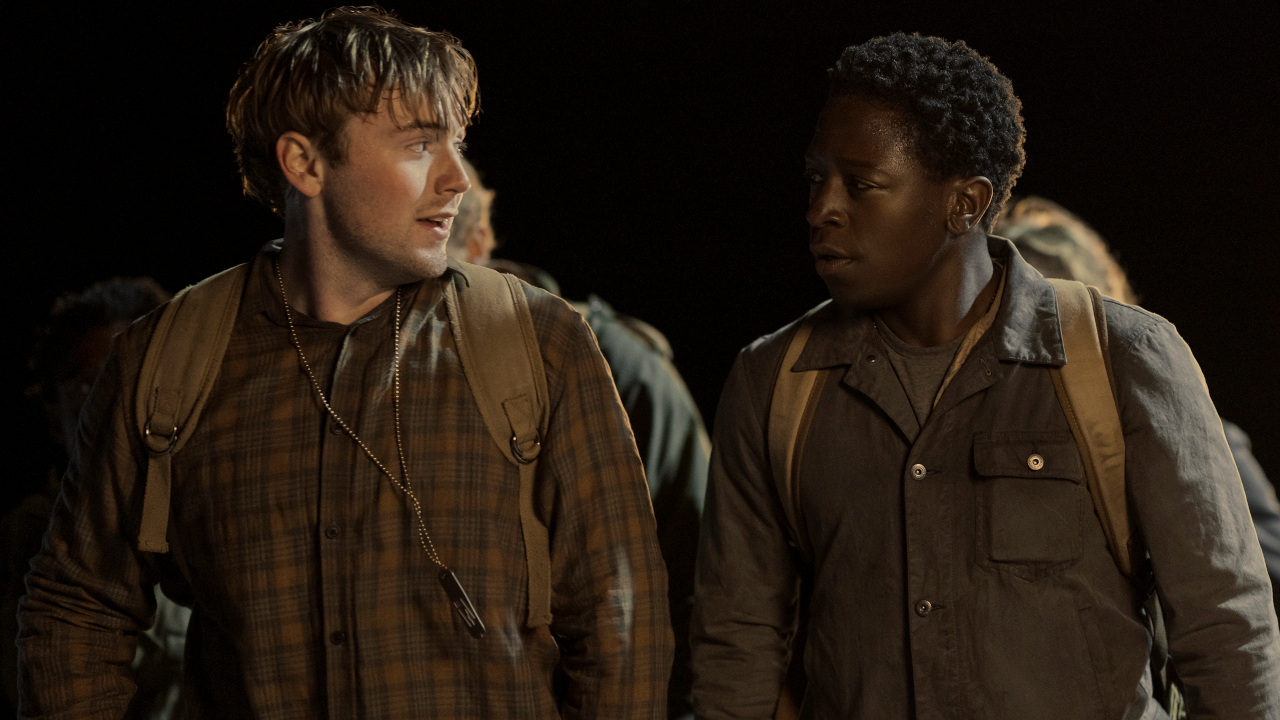
How It’s Different Than What Is Featured In The Theatrical Cut Of The Long Walk
At the center of the difference between the theatrical cut ending and the alternate ending is the choice made by Peter when he has a gun in his hand: in the big screen version, he makes the decision to pull the trigger and kill the Major, and in the home video-released scene, he doesn’t. Both versions have the character walk away in the final seconds, though only the alternate cut gives the character a future – one that allows him to fulfill the promise that he made to all of his fellow Musketeers.
In a way, the alternate ending is what I thought I wanted in the immediate aftermath of first seeing The Long Walk: as I sat in the theater, it felt wrong that the wonderful Peter McVries would betray his peace-inclined nature and follow through on his friend’s wish. As reflected in the pre-title card/end credits text, choosing non-violence would mean that Peter could use his status as a winner to do good things, and it could have left the film with a positive message about rising above anger. One could argue that the character wastes his wish, but the logic tracks.
The problem with this is two-fold: it’s too easy, and it doesn’t match the spirit of the source material. While there is no erasing all of the extreme darkness in The Long Walk, what is featured in the alternate ending is basically the “happiest” possible outcome, and it’s ultimately unfair and unrealistic to Peter as a character to have him make a proper moral choice in the aftermath of enduring all of the horror and trauma of the competition.
What’s truly powerful about the end of The Long Walk is that while Peter makes the wrong choice morally, he doesn’t get the audience’s negative judgment for the action because we understand that he is the terrible result of a broken world. The alternate ending undoes all of that.
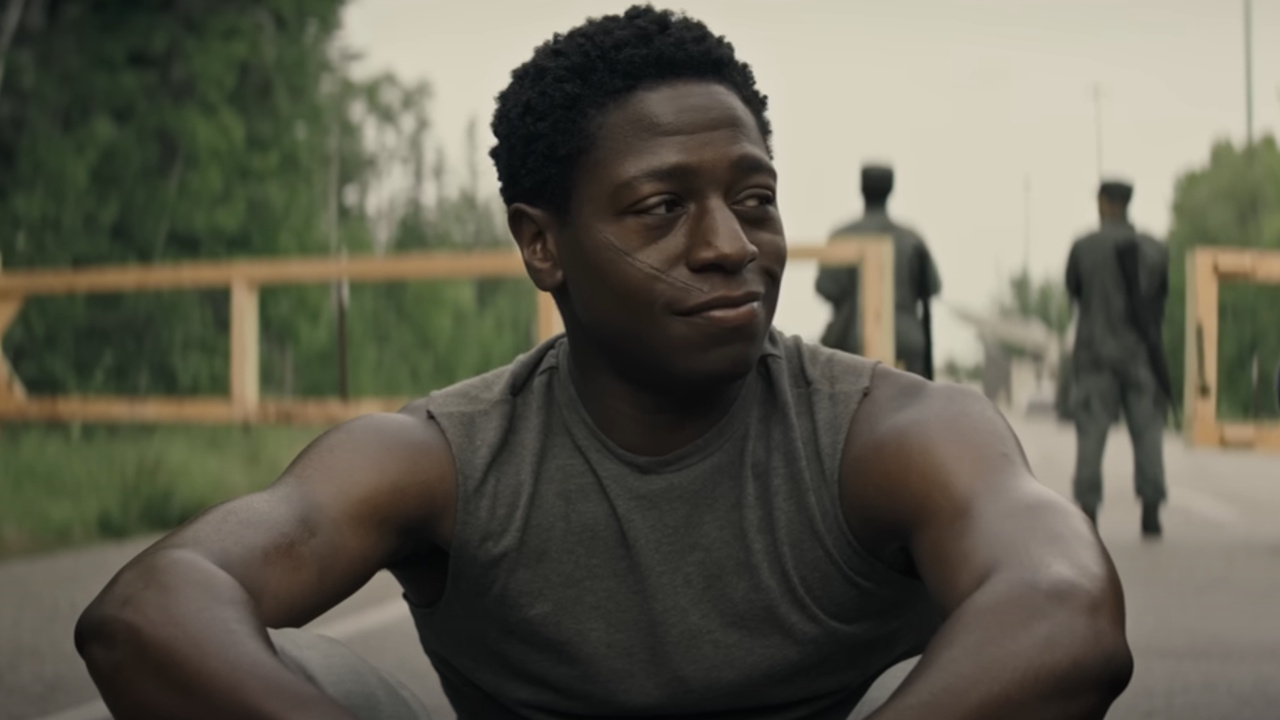
I’m Shocked That A Studio Executive Didn’t Demand The Alternate Ending Be In The Theatrical Cut, And It Makes Me More Upset About The Running Man Ending
Specific as it may sound, this has been an interesting past few weeks for discussing the third acts of movies that are based on books written by Stephen King but originally published under his Richard Bachman pseudonym. In addition to analyzing The Long Walk alternate ending, I’m still not over how bad the final scenes are in Edgar Wright’s The Running Man… and I’m actually a bit more upset about the latter now than I was before seeing the former.
When decisions were being made in post-production on The Long Walk, there was a point when the filmmakers and the studio had to decide which version would make it to theaters: the ultra dark version, or the lighter-but-still-pretty-dark version. It was recognized that the ultra dark version, while not typically “Hollywood entertainment,” was more meaningful and impactful, and so that was chosen as the way to go.
Meanwhile, The Running Man decided that it couldn’t commit to Stephen King’s ending despite being a super faithful adaptation otherwise, and so what was delivered to theaters was an ending that eliminates anything and everything even remotely dark from the conclusion of the book so that the hero can have a happily ever after.
I respect that making a direct comparison between the two movies isn’t totally fair: one was developed as a PG-13 fall blockbuster with a nine-figure budget, while the other was made for $20 million and released with an R-rating. With less box office pressure extending from less cost, the Francis Lawrence film had the freedom to take some bigger swings. But when the long, long history of Stephen King adaptations reflects on the two titles minus the industry and development context, what will be found is one movie that committed to its source material and one movie that compromised.
That concludes this special edition of The King Beat (I hope each and every one of you has a very enjoyable Thanksgiving!), but there is never a week that goes by without something interesting or cool happening in the world of Stephen King, and I’ll be back here on CinemaBlend next Thursday with a new column examining the latest developments. For now, you can pick up a copy of The Long Walk 4K UHD Steelbook exclusively from Amazon, watch the latest episode of IT: Welcome To Derry on Sunday at 9pm ET/PT on HBO, and learn about all of the various adaptations in the works with our Upcoming Stephen King Movies and TV guide.

Eric Eisenberg is the Assistant Managing Editor at CinemaBlend. After graduating Boston University and earning a bachelor’s degree in journalism, he took a part-time job as a staff writer for CinemaBlend, and after six months was offered the opportunity to move to Los Angeles and take on a newly created West Coast Editor position. Over a decade later, he's continuing to advance his interests and expertise. In addition to conducting filmmaker interviews and contributing to the news and feature content of the site, Eric also oversees the Movie Reviews section, writes the the weekend box office report (published Sundays), and is the site's resident Stephen King expert. He has two King-related columns.
You must confirm your public display name before commenting
Please logout and then login again, you will then be prompted to enter your display name.
